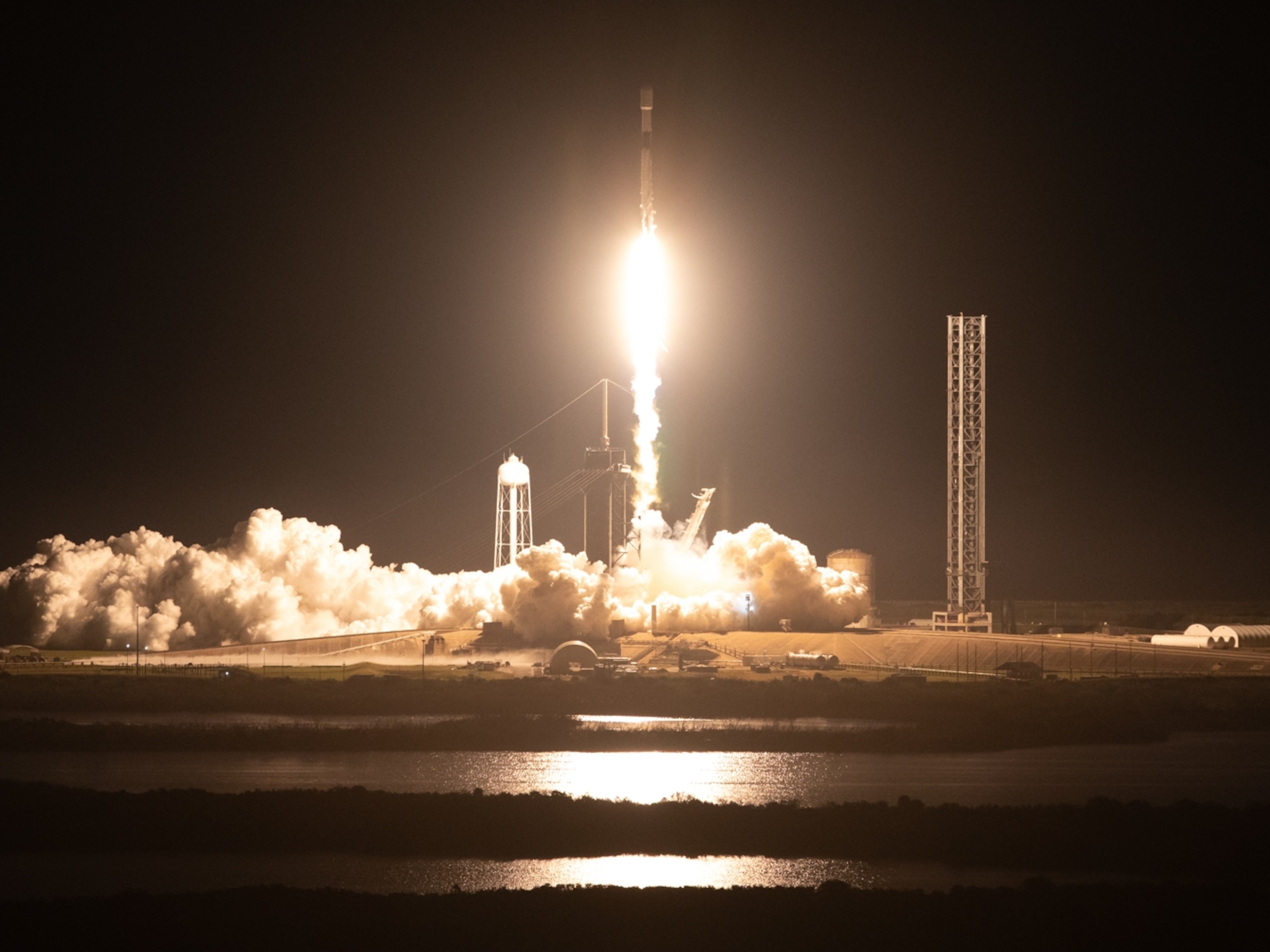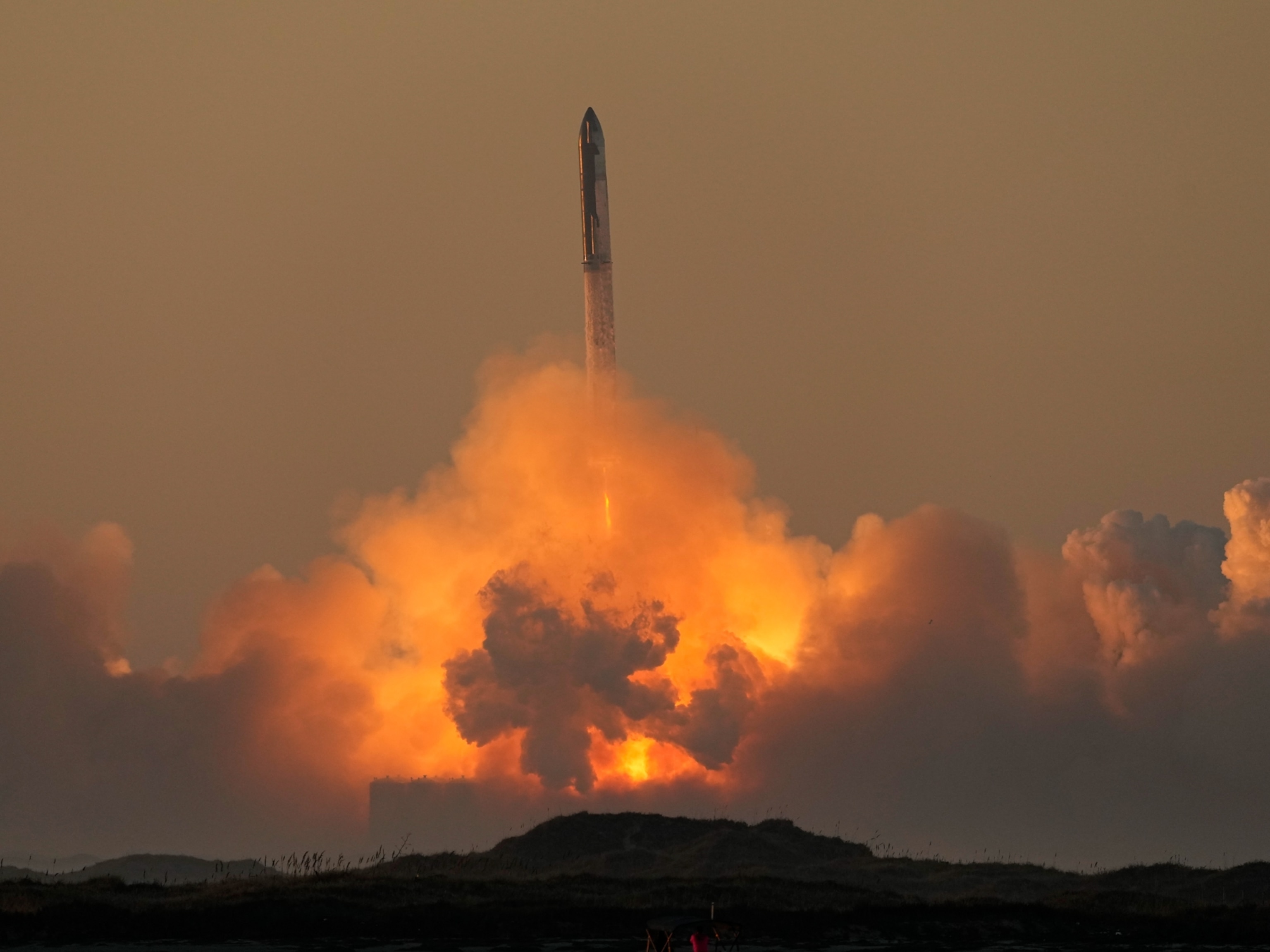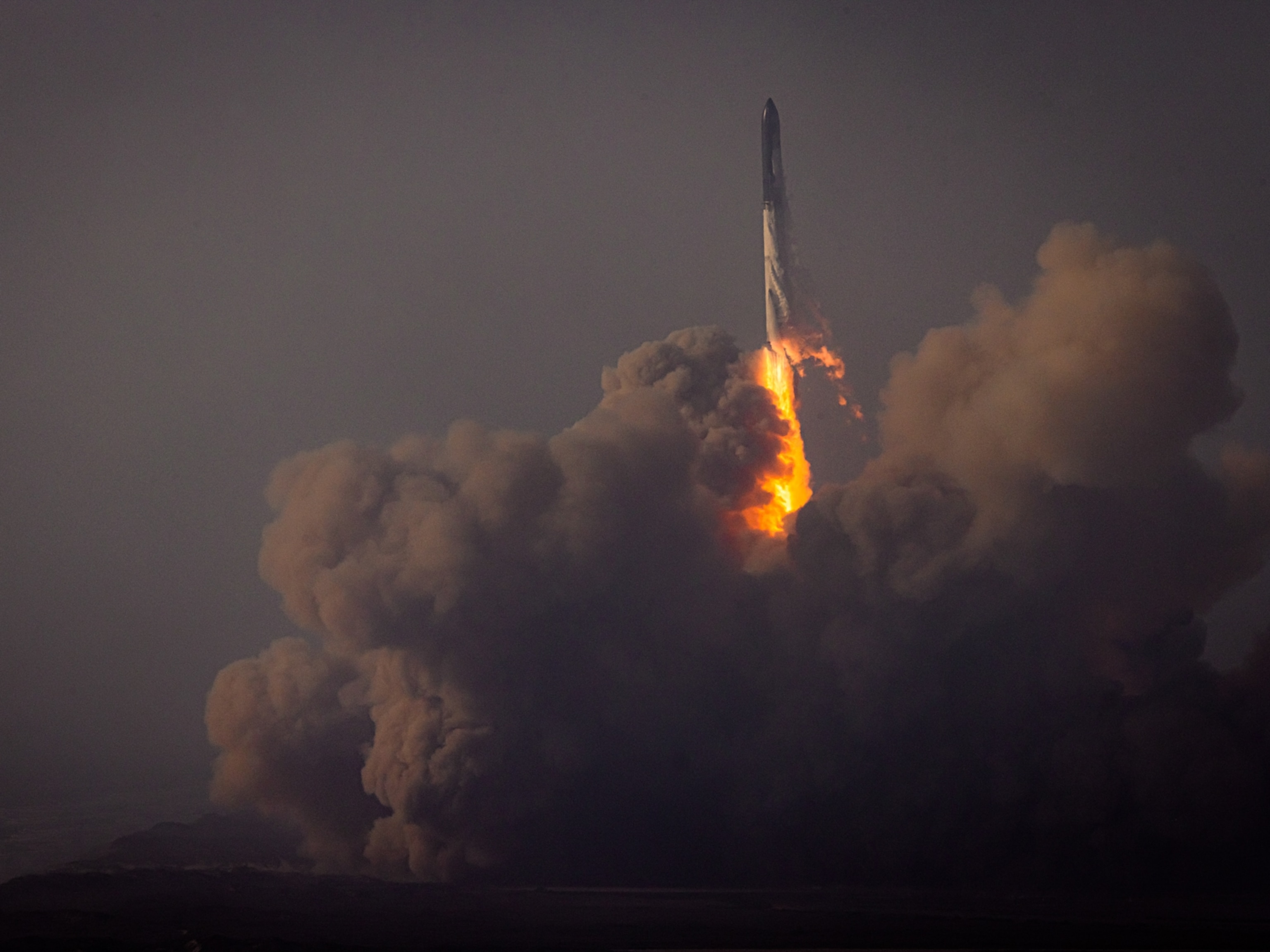
Will Virgin Galactic's Crash End Space Tourism?
The fatal explosion of SpaceShipTwo in the Mojave Desert may lead to more scrutiny of the fledgling space passenger industry.
The crash of Virgin Galactic's SpaceShipTwo experimental space plane on Friday, which killed one test pilot and severely injured another, may have wrecked the future of space tourism.
"For the industry, the joyride is over," says attorney Michael Listner of the Space Law and Policy Solutions space law firm. "This is going to mean a lot more regulation. And there is the question of whether the industry will even survive."
Shortly after 1 p.m. EST, a test flight of the experimental space glider at southern California's Mojave Air and Space Port suffered what Virgin Galactic called an "anomaly," as witnesses reported its rocket engine misfiring and the spacecraft breaking apart in mid-air.
SpaceShipTwo was the most glamorous entrant in a decades-long race to pioneer space tourism, intended to carry six passengers and two pilots into space on a suborbital flight.
The accident comes days after the fiery explosion of the unmanned Antares rocket on a commercial resupply mission to the International Space Station. While unconnected, the two disasters in the same week point to the perils of space travel. (Read about why NASA blew up the Antares rocket just after launch.)
High Flyer
SpaceShipTwo was the flagship of British commercial spaceflight firm Virgin Galactic, founded by celebrity British entrepreneur Sir Richard Branson. The company was developing the space glider in partnership with aerospace firm Scaled Composites of Mojave, California, owned by Northrop Grumman.

Funded by refundable deposits on $250,000 seats, with more than 500 reportedly booked, Branson had been promising would-be astronauts a chance to experience spaceflight since 2007.
The experimental spacecraft was designed by celebrated engineer Burt Rutan, who designed the Voyager aircraft, which was the first one to fly completely around the world without refueling or stopping.
SpaceShipTwo's innovative design saw the space glider carried to the altitude of 45,000 feet by a plane, then dropped and fired into space by rocket engine, returning to Earth as a glider.
"We will work closely with the relevant authorities to determine the cause of the accident and provide updates as soon as we are able to do so," Virgin Galactic said in a statement on the accident.
Friday's flight was a test of a new, more powerful fuel design for the spacecraft's rocket engine, one originally promised for June.
While the investigation is just beginning, "there was a general sense that they were rushing through engine testing and that the flight test program they had laid out was aggressive bordering on dangerous," said Doug Messier, managing editor of Parabolic Arc magazine.
"They had planned a handful of flights, starting with this one, and then were going to put Richard Branson and his son Sam aboard for the first commercial flight out of New Mexico.
"Branson wanted to fly in March," Messier said by email.
At a news conference on Friday, Kevin Mickey of Scaled Composites defended the rockets, saying "this was a new fuel formulation that had been tested many times before on the ground."
More Regulation and Less Demand?
The Federal Aviation Administration announced Friday that it is investigating the crash, and Listner says the crash means the fledgling space tourism industry will now come under closer regulatory scrutiny.
U.S. commercial spaceflight is governed by a 2004 law giving the FAA oversight of the industry. Virgin Galactic's main competitor in the promised space plane business is XCOR of Midlands, Texas, which has reportedly presold more than a hundred rides on its Lynx space plane for $95,000 apiece.
So far, the only real space tourists have purchased seven rides costing more than $20 million to the International Space Station aboard Russian rockets. All of them have traveled safely, although a 2007 test firing of rocket engines for SpaceShipTwo killed three engineers in an explosion.
"It will be interesting to see what happens to Virgin Galactic now, if passengers have second thoughts and start demanding refunds," Listner says.
On Twitter, some users said the crash had turned them off to the idea of space tourism:
Others said they are still open to the idea:
For now, the future of the New Mexico spaceport intended as the hub and central customer for Virgin Galactic's operations seems uncertain.
And for Scaled Composites and Virgin Galactic, Messier says, "it's obviously a massive setback.
"I'm hesitant to try to make predictions this soon after the accident," he says. "They've been working on SpaceShipTwo for ten years now. If the engine blew, they may have to go back to the drawing board."
Follow Dan Vergano on Twitter.
Related Topics
You May Also Like
Go Further
Animals
- This ‘saber-toothed’ salmon wasn’t quite what we thoughtThis ‘saber-toothed’ salmon wasn’t quite what we thought
- Why this rhino-zebra friendship makes perfect senseWhy this rhino-zebra friendship makes perfect sense
- When did bioluminescence evolve? It’s older than we thought.When did bioluminescence evolve? It’s older than we thought.
- Soy, skim … spider. Are any of these technically milk?Soy, skim … spider. Are any of these technically milk?
- This pristine piece of the Amazon shows nature’s resilienceThis pristine piece of the Amazon shows nature’s resilience
Environment
- This pristine piece of the Amazon shows nature’s resilienceThis pristine piece of the Amazon shows nature’s resilience
- Listen to 30 years of climate change transformed into haunting musicListen to 30 years of climate change transformed into haunting music
- This ancient society tried to stop El Niño—with child sacrificeThis ancient society tried to stop El Niño—with child sacrifice
- U.S. plans to clean its drinking water. What does that mean?U.S. plans to clean its drinking water. What does that mean?
History & Culture
- Séances at the White House? Why these first ladies turned to the occultSéances at the White House? Why these first ladies turned to the occult
- Gambling is everywhere now. When is that a problem?Gambling is everywhere now. When is that a problem?
- Beauty is pain—at least it was in 17th-century SpainBeauty is pain—at least it was in 17th-century Spain
- The real spies who inspired ‘The Ministry of Ungentlemanly Warfare’The real spies who inspired ‘The Ministry of Ungentlemanly Warfare’
- Heard of Zoroastrianism? The religion still has fervent followersHeard of Zoroastrianism? The religion still has fervent followers
Science
- Here's how astronomers found one of the rarest phenomenons in spaceHere's how astronomers found one of the rarest phenomenons in space
- Not an extrovert or introvert? There’s a word for that.Not an extrovert or introvert? There’s a word for that.
- NASA has a plan to clean up space junk—but is going green enough?NASA has a plan to clean up space junk—but is going green enough?
- Soy, skim … spider. Are any of these technically milk?Soy, skim … spider. Are any of these technically milk?
- Can aspirin help protect against colorectal cancers?Can aspirin help protect against colorectal cancers?
Travel
- What it's like to hike the Camino del Mayab in MexicoWhat it's like to hike the Camino del Mayab in Mexico
- Is this small English town Yorkshire's culinary capital?Is this small English town Yorkshire's culinary capital?
- This chef is taking Indian cuisine in a bold new directionThis chef is taking Indian cuisine in a bold new direction
- Follow in the footsteps of Robin Hood in Sherwood ForestFollow in the footsteps of Robin Hood in Sherwood Forest




